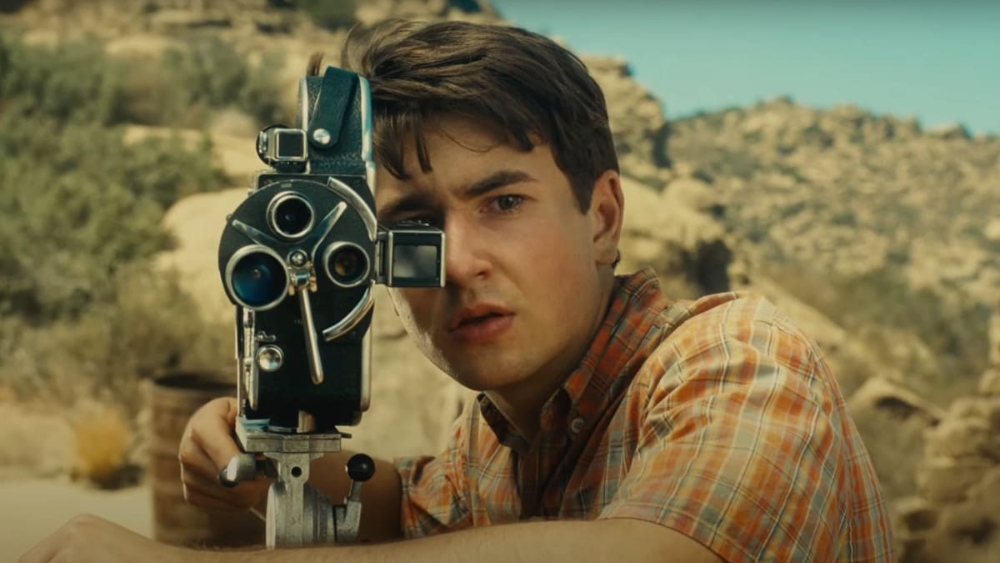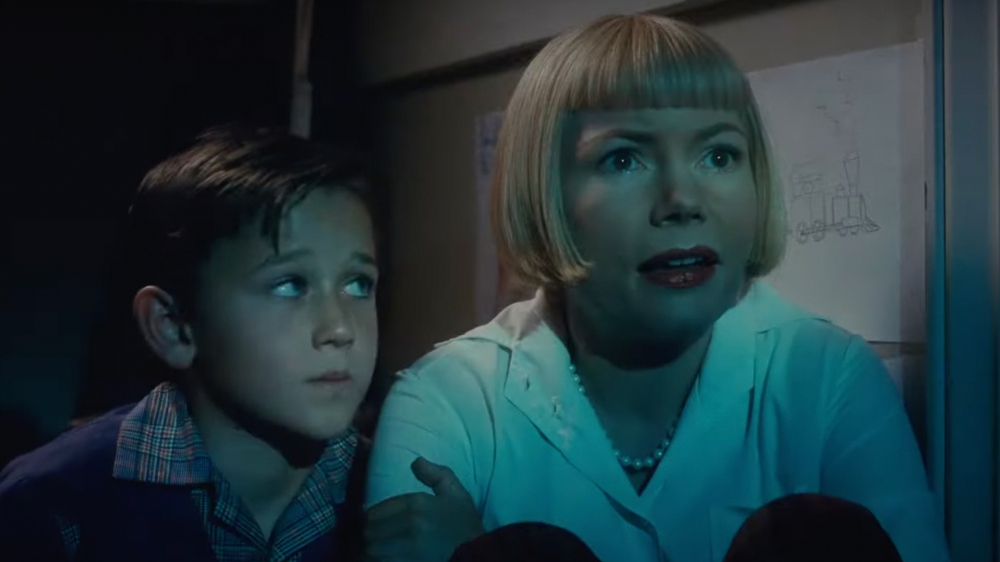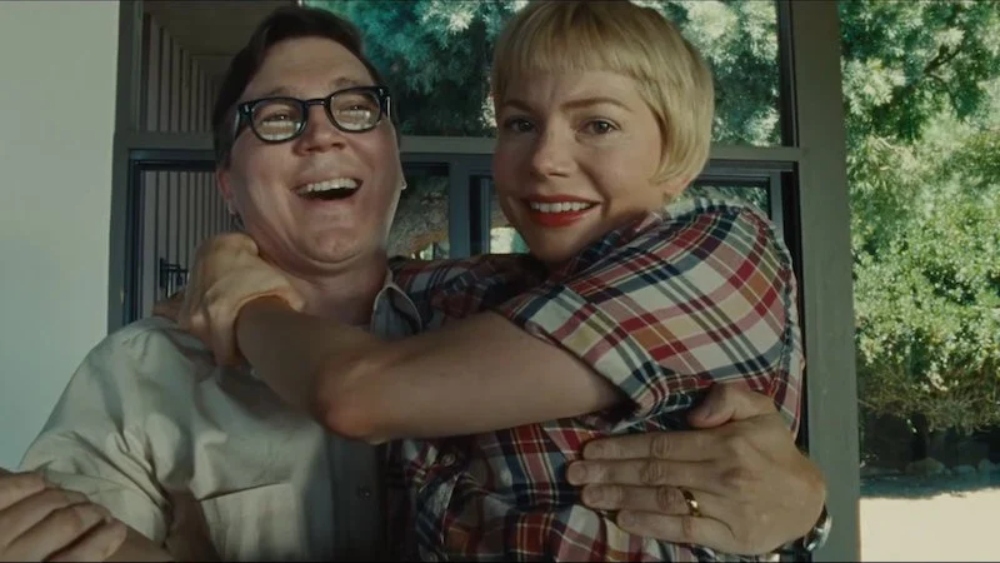
There are no living directors (and perhaps not even dead ones) who can combine the utter originality of Steven Spielberg’s projects with his pinpoint perfection when it comes to technical and emotional moviemaking. Few filmmakers have been able to so entertain audiences, while wowing them with effects and adventure, pulling at the emotional heartstrings, and showcasing persistently original, intelligent content. In short, Steven Spielberg, even when remaking a movie, is almost wholly unique.
Even so, that majestic perfection meets its match in Spielberg’s latest project, the semi-autobiographical movie The Fabelmans, which marked the Oscar-winning director’s first film to ever premiere at a festival. The end result is a movie that once more showcases the endless talent of Spielberg and his cadre of below-the-line collaborators, though it’s less an emotional rollercoaster from start to finish than a movie that slowly reveals its emotional core over the course of nearly three hours.
The Fabelmans opens with little Sammy Fabelman’s parents — played by Paul Dano and Michelle Williams –driving the 5-year-old to see The Greatest Show on Earth, and little do they know that a great filmmaker is in the making. Spielberg has long kept audiences on their toes. When Jaws begins, you really don’t know what’s about to happen to poor Chrissie. In Raiders of the Lost Ark, who could have foreseen exactly how Dr. Jones was going to escape that Peruvian temple? By contrast, the plot of The Fabelmans is as predictable as that of the fatuous movie that Steven’s parents — excuse me, Sammy’s parents — chose for the young one’s first trip to the cinema. The kid is skeptical at first but quickly wowed, and the rest, as they say, is history.
Much of the rest of The Fabelmans finds young Sammy, and then the teenage version of him (played by a fantastic Gabriel LaBelle), falling in love with movies and getting good at making them, but unfortunately, you’ve seen this movie in various forms many, many times before. There’s nothing wrong with making a biopic, of course, though one wishes that Spielberg and frequent collaborator Tony Kushner had focused more of their script on the parts of the director’s life that make his story more emotionally gripping.

Those parts are definitely there, though. Williams is superb as Sammy’s mother, Mitzi, who struggles with anxiety, paranoia, delusions, and depression, and the nagging feeling that there’s something missing from her relationship with her husband, Burt. That’s why she shares Burt’s best friend with him, whom the family affectionately refers to as “Uncle” Benny (Seth Rogen). Uncle Benny is a bit more supportive of Sammy’s filmmaking aspirations than Burt, who keeps calling it a “hobby” despite Sammy’s pleas to take him seriously.
Meanwhile, Judd Hirsch makes an incredible cameo as Uncle Boris, who shows up to cement Sammy’s commitment to his chosen artform, while filmmaker David Lynch also makes a great cameo as a famous Hollywood director who offers Sammy some wisdom before the end of the picture. These two scenes alone elevate The Fabelmans above your friendly neighborhood coming-of-age story, as they offer a pair of undeniably powerful moments that leave you wanting more.
Beyond the effective but mostly mundane story, The Fabelmans is, of course, a perfectly-rendered movie from a below-the-line standpoint. Composer John Williams offers up another fresh score that merges seamlessly into the proceedings. Cinematographer Janusz Kaminski’s cinematography evokes his Bridge of Spies approach — sepia and fable-like colors that make the film feel a tad surreal and dreamlike. Production Designer Rick Carter creates immaculate sets from the ’50s and ’60s, from an Arizona high school to the typical American kitchen of the time, and Mark Bridges’ costumes go a long way toward selling the stunning Williams as a somewhat troubled housewife.
And though young Sammy spends much time cutting film with then-modern film editing machines, including a Bolex, Michael Kahn edits the movie with an invisible hand — you never feel the length even though the running time is north of 2.5 hours. All in all, this is a group of below-the-line experts, all of whom are operating at the top of their game. There is not a wasted moment, not a tone that is superfluous, not a scene that feels sloppy. Every few minutes or so, The Fabelmans makes you smile from ear to ear, adding up to an instant classic.

Performance-wise, the subtle beauty of Williams’ turn as Sammy’s mom cannot be overstated. She was clearly a central figure in his life, and an often difficult and demanding one at that — close to Sammy at times and distant at others — but always loving and supportive. Williams is asked to display a wide range of emotions, from those of a frustrated housewife to those of a dreamy, dancing princess who fully appreciates the beauty of life. Dano, too, is effective as Sammy’s nerdy, hardworking father, but his character gives him much less material to work with, so beyond Hirsch and Lynch’s emotive cameos and LaBelle’s impressive lead performance, The Fabelmans is very much Williams’ show.
Still, The Fabelmans is one of those movies that isn’t quite greater than the sum of its undeniably incredible parts. For each amazing sequence, there are a ton of simple, well-made, and even “good” scenes, but ones that we have seen before nonetheless.
In The Greatest Show on Earth, the Great Sebastian performs miracles for the circus, and helps his friend Brad narrowly escape death thanks to an improbable blood transfusion. Though originally inspired by this and other scenes in that Best Picture winner, young Steven Spielberg became a much better storyteller almost immediately. By the time he was the Great Sebastian’s age, he had performed not only movie miracles but established himself as a true creative genius. And now, just when it seems as though the kind of classic cinema that Hollywood was once known for is in its death throes, Spielberg returns to breathe fresh life into a movie landscape that is currently overdosing on IP. That may end up being the ultimate redeeming value of The Fabelmans — understanding where Spielberg’s brilliance came from and how he went on to deliver some of the greatest “shows” on Earth.
Grade: B+
The Fabelmans had its world premiere at the Toronto International Film Festival on Sept. 10 and will be released in U.S. theaters on Nov. 11 by Universal Pictures.





